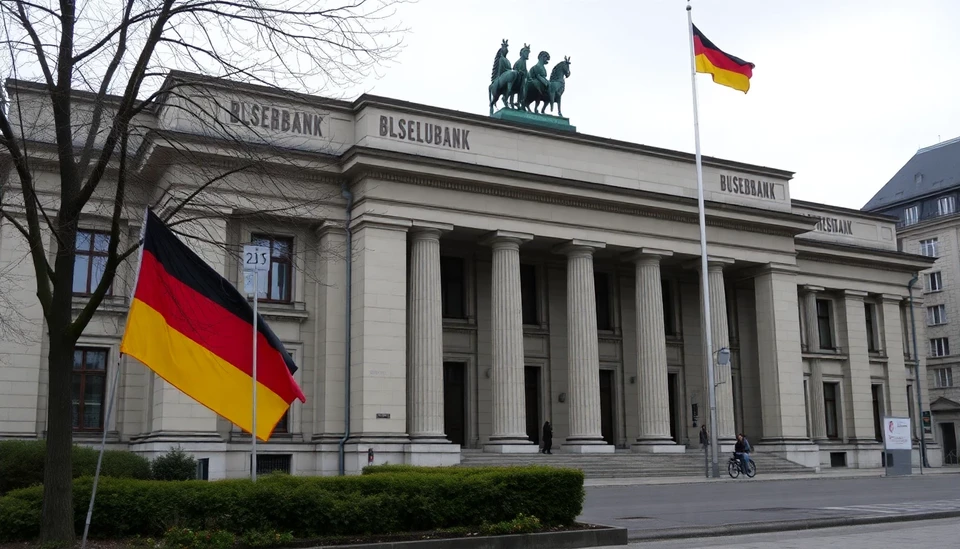
The Bundesbank, Germany’s central bank, has issued a stark forecast regarding the country’s economic outlook, projecting minimal growth for 2025. This reflects broader concerns regarding the resilience of Europe’s largest economy amidst global economic challenges and regional uncertainties.
In its latest report, the Bundesbank indicated that the German economy is expected to see growth barely above zero, attributing this stagnation to a combination of factors including declining domestic demand, rising interest rates, and ongoing geopolitical tensions that have strained trade relationships.
Following a lackluster performance in the preceding years, concerns were already heightened among analysts and policymakers regarding the sustainability of economic recovery efforts. The bank projected that these issues will continue to pose significant hurdles going forward, leading many to question the robustness of Germany’s economic engine, which has traditionally been viewed as a bastion of strength within Europe.
The Bundesbank’s analysis also emphasized the impact of rising inflation, which has compelled the European Central Bank (ECB) to implement stringent monetary policies, including increasing interest rates. This has, in turn, led to higher borrowing costs for businesses and consumers alike, effectively dampening spending and investment activities across various sectors.
Experts have highlighted that as the central bank aims to rein in inflation, the resultant economic cooling will likely contribute further to the projected stagnation in growth. Industries that have previously driven growth, such as manufacturing and exports, are now facing headwinds due to reduced demand both domestically and abroad.
Moreover, the uncertainty surrounding geopolitical tensions, especially in relation to trade with key partners, continues to weigh heavily on the outlook. Analysts point to the longstanding dependency on international markets, which has made the German economy particularly vulnerable to global supply chain disruptions and trade conflicts.
The prediction by the Bundesbank has sparked renewed discussions among policymakers on the need to re-evaluate economic strategies. Many officials are advocating for a focus on digital innovation and sustainable practices to foster resilience in the face of economic challenges. However, there is an overarching concern that without targeted interventions, Germany may fall behind its European counterparts in terms of economic growth and innovation.
As we move towards 2025, market observers will be closely monitoring indicators that could suggest a shift in this trajectory. The focus will be on employment rates, consumer spending trends, and changes in the global economic landscape, all of which will play a critical role in shaping the German economy’s path.
In conclusion, the Bundesbank’s outlook raises significant questions for stakeholders, from corporate leaders to policymakers, about strategies needed to navigate the challenging environment ahead. There is a growing consensus that proactive measures will be essential in fostering an economic landscape that can adapt and thrive amidst uncertainty.
#GermanEconomy #Bundesbank #EconomicForecast #Stagnation #Inflation #InterestRates #GeopoliticalTension #SustainableGrowth
Author: Daniel Foster




